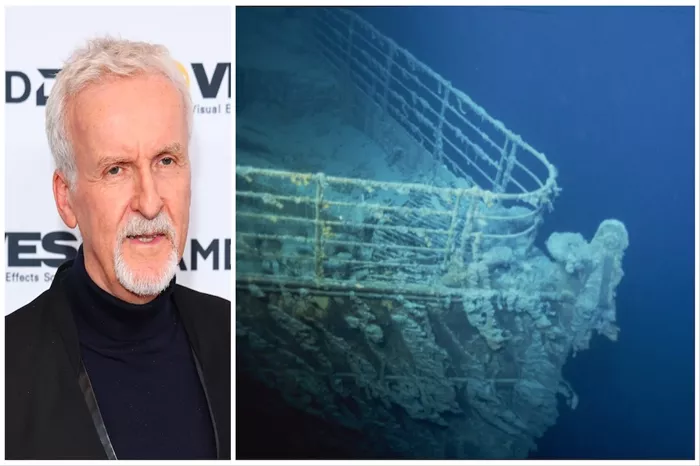“Titanic” is one of the most iconic films in cinematic history. Released in 1997, it captivated audiences around the world with its epic love story, stunning visuals, and historical accuracy. The film tells the tragic tale of the RMS Titanic’s maiden voyage, intertwining a fictional romance with real events. Directed by James Cameron, “Titanic” became a landmark achievement in filmmaking, garnering critical acclaim and massive box office success. In this article, we will explore the life and career of James Cameron, the vision behind “Titanic,” and the impact the film has had on the industry and popular culture.
Who Is James Cameron?
Early Life
James Francis Cameron was born on August 16, 1954, in Kapuskasing, Ontario, Canada. He grew up in a modest family and developed an early interest in science and storytelling. Cameron’s fascination with movies began at a young age, influenced by science fiction and adventure films. He moved to the United States in 1971, where he attended Fullerton College in California. After dropping out, he took on various jobs in the film industry, including working as a production assistant.
Career Beginnings
Cameron’s career took off in the early 1980s when he joined Roger Corman’s production company. He gained recognition for his work on low-budget films like “Piranha II: The Spawning.” However, it was his screenplay for “The Terminator” (1984) that truly put him on the map. Starring Arnold Schwarzenegger, the film became a massive hit and established Cameron as a talented director and writer.
James Cameron’s Vision for Titanic
Concept and Development
Cameron conceived the idea for “Titanic” while he was diving to explore the wreckage of the ship in the early 1990s. He was struck by the tragedy of the event and wanted to create a film that honored the lives lost while telling a compelling story. Cameron spent several years researching the Titanic, studying its history, and gathering detailed information about the ship and its passengers.
Screenwriting Process
Cameron’s writing process for “Titanic” was meticulous. He combined historical facts with a fictional romance between characters Jack Dawson (played by Leonardo DiCaprio) and Rose DeWitt Bukater (played by Kate Winslet). This love story served as a vehicle to explore the themes of class struggle, sacrifice, and the fleeting nature of life. The screenplay underwent multiple drafts, with Cameron refining the dialogue and character arcs to enhance emotional impact.
See also: Who Died in the Titanic Movie? [Revealed]
Filming Titanic
Production Challenges
Filming “Titanic” was a monumental task. Cameron faced numerous challenges, including budget constraints and time pressures. The film’s budget eventually ballooned to over $200 million, making it one of the most expensive films ever made at the time. Cameron’s ambition to create realistic depictions of the Titanic led to the construction of a near-full-scale replica of the ship.
Innovative Techniques
Cameron employed innovative filmmaking techniques to bring “Titanic” to life. He utilized cutting-edge special effects and practical effects to create the illusion of the ship sinking. The combination of real sets, miniatures, and computer-generated imagery (CGI) allowed for breathtaking visuals that still resonate with audiences today. The attention to detail, from the ship’s interiors to the costumes, contributed to the film’s authenticity.
The Success of Titanic
Box Office Records
“Titanic” was released on December 19, 1997, and quickly became a cultural phenomenon. It broke box office records, grossing over $2.2 billion worldwide. For many years, it held the title of the highest-grossing film in history until “Avatar,” another Cameron film, surpassed it in 2010. The film’s success was attributed to its captivating story, powerful performances, and groundbreaking visuals.
Critical Acclaim
The film received critical acclaim, winning 11 Academy Awards, including Best Picture and Best Director for James Cameron. The film’s emotional depth, character development, and impressive production values were praised by critics. “Titanic” resonated with audiences of all ages, becoming a timeless classic.
The Legacy of Titanic
Impact on Filmmaking
“Titanic” changed the landscape of filmmaking. It set new standards for visual effects and production design, influencing future filmmakers. Cameron’s dedication to storytelling and attention to detail became a benchmark for epic films. The film also revived interest in historical dramas and romantic narratives in cinema.
Cultural Influence
The impact of “Titanic” extended beyond the film industry. It became a cultural touchstone, inspiring countless parodies, references, and tributes in various media. The film’s theme song, “My Heart Will Go On,” performed by Celine Dion, became a global hit, further solidifying its place in popular culture.
James Cameron’s Continued Success
Subsequent Projects
Following the success of “Titanic,” James Cameron continued to push the boundaries of filmmaking. He directed and produced several successful films, including “Avatar” (2009), which introduced revolutionary 3D technology. Cameron’s commitment to storytelling and technological innovation has kept him at the forefront of the film industry.
Exploration and Innovation
Cameron has also pursued his passion for exploration. He has made numerous deep-sea dives, including a historic solo dive to the Mariana Trench in 2012. His experiences in exploration have influenced his storytelling, leading to projects that explore the depths of the ocean and the mysteries of nature.
Conclusion
James Cameron, the director of “Titanic,” is a visionary filmmaker whose work has left an indelible mark on cinema. “Titanic” is a testament to his talent and dedication to storytelling. The film not only captured the tragic history of the Titanic but also created a timeless love story that resonates with audiences worldwide. Through his innovative techniques and commitment to excellence, Cameron has set new standards for filmmaking and continues to inspire future generations. As we reflect on the legacy of “Titanic,” it is clear that James Cameron’s contributions to cinema will be remembered for years to come.
Related topic:
How Many Oscars Did Titanic Win?
Is The Titanic A True Love Story?
Was the Titanic Movie Filmed in a Pool?

